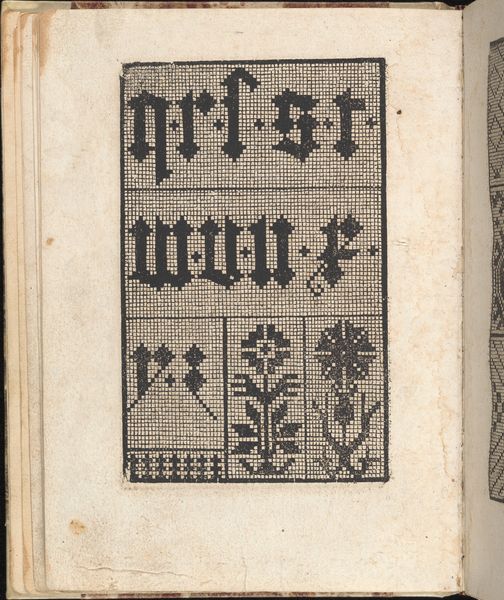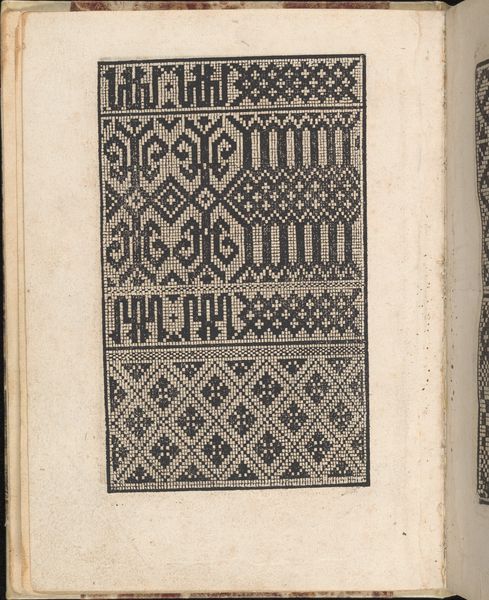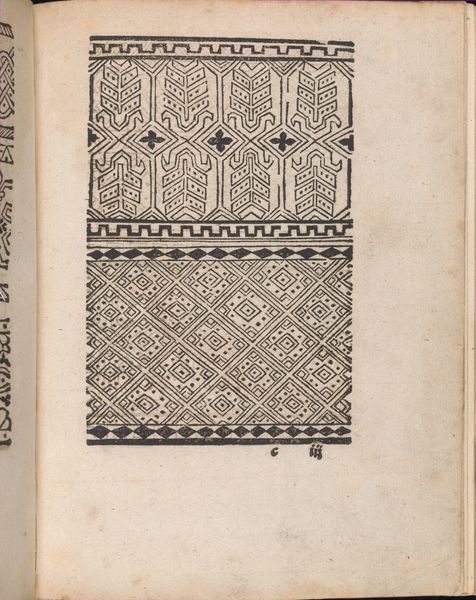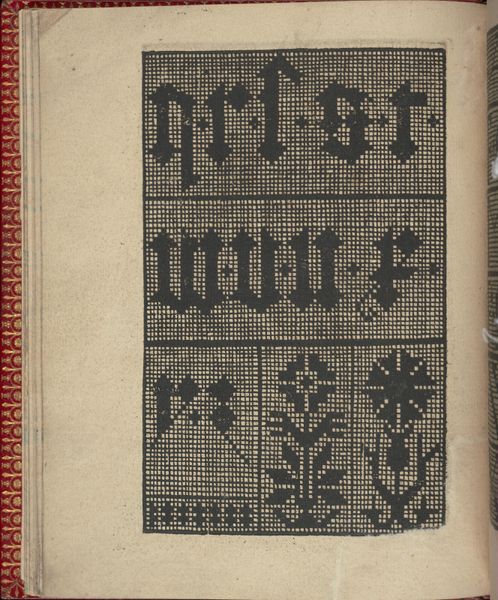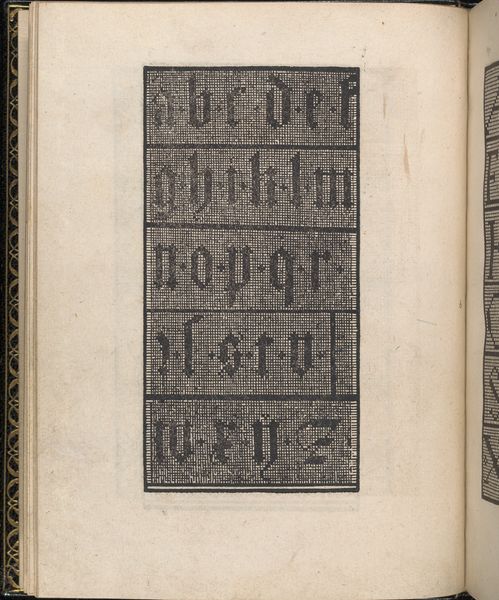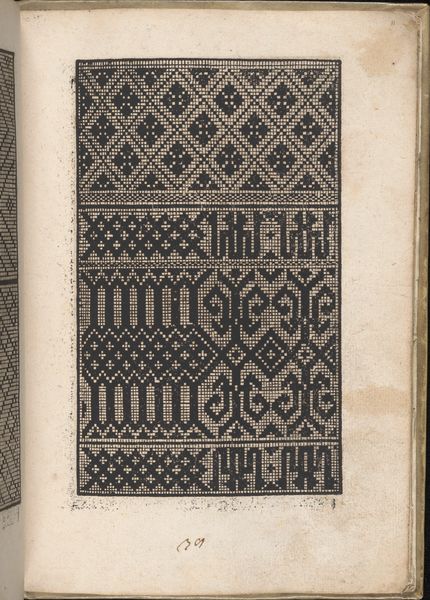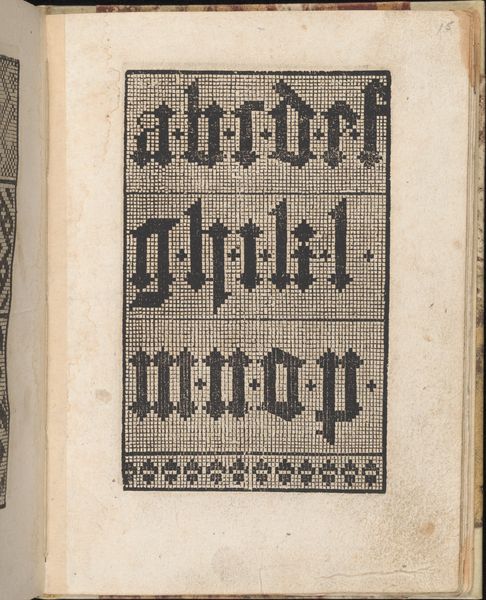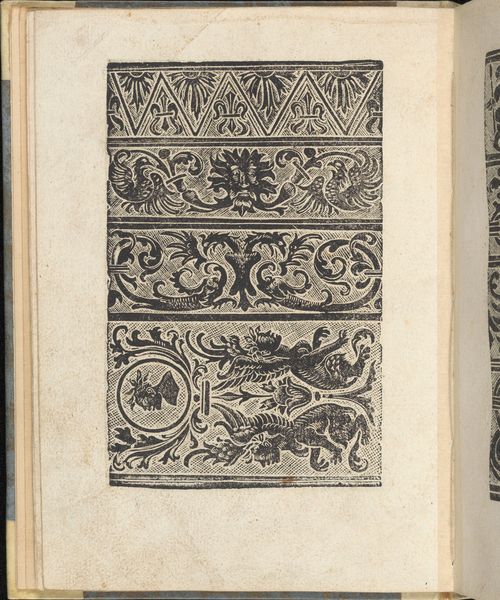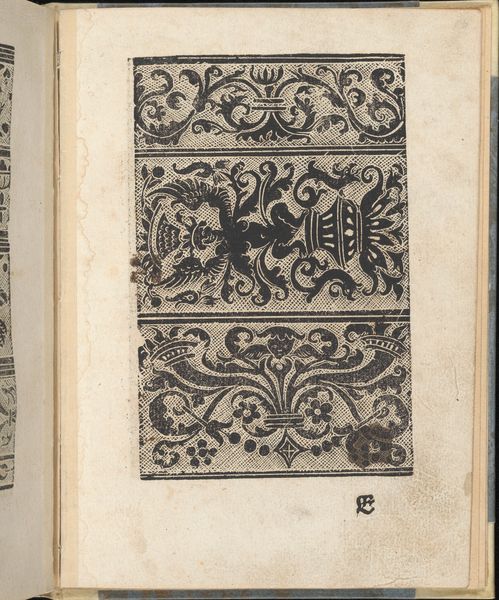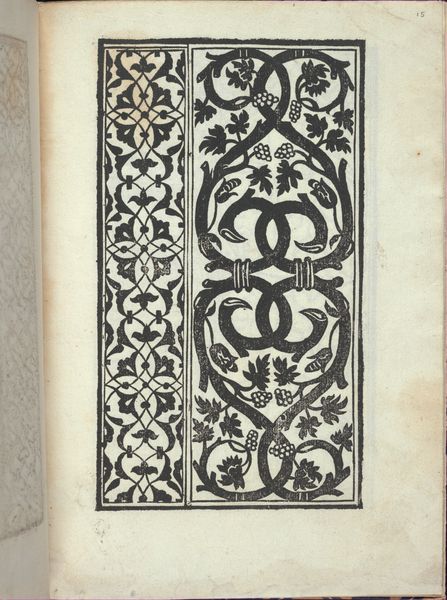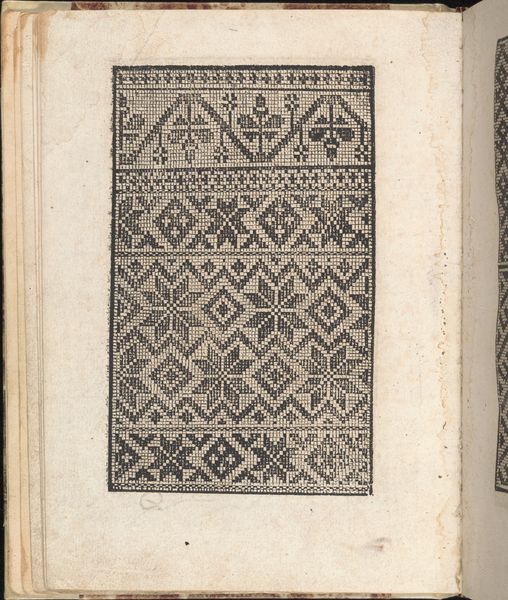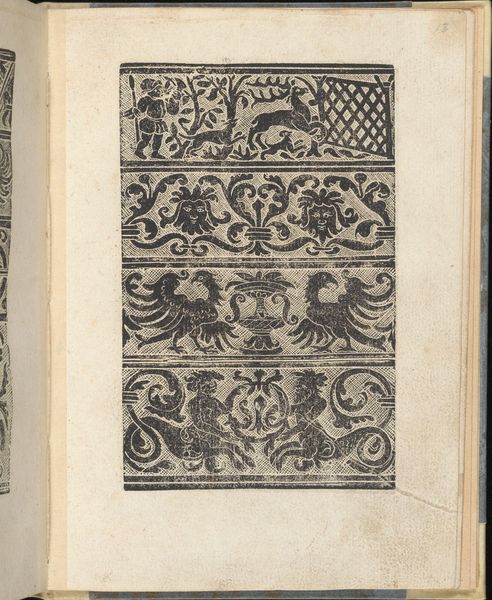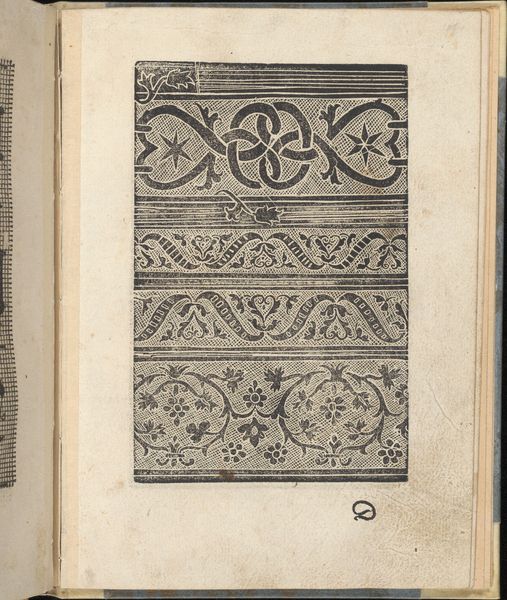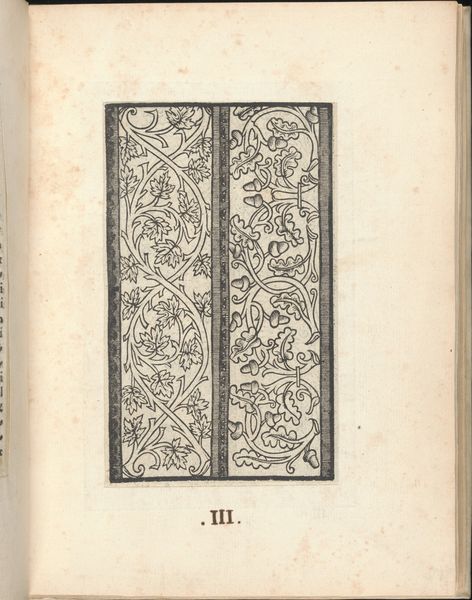
drawing, graphic-art, print, woodcut
#
drawing
#
graphic-art
# print
#
11_renaissance
#
geometric
#
woodcut
#
line
Dimensions: 9 5/16 x 7 1/4 x 15/16 in. (23.7 x 18.4 x 2.4 cm)
Copyright: Public Domain
This is page 17 from "Esemplario di lavori," an early 16th-century woodcut book by Nicolò Zoppino, showcasing patterns for embroidery and needlework. Note the meander patterns at the bottom. This motif, also known as the Greek key, has ancient roots. It adorned classical architecture, pottery, and textiles, symbolizing eternity and the infinite flow of life. Yet, these aren't merely decorative. Consider how this pattern appears in other contexts: in ancient labyrinths, or even neuroscientific diagrams, where the pattern is used to indicate connectivity. It speaks to a deep, perhaps subconscious human fascination with cyclical forms. Over centuries, its meaning has shifted, yet the underlying emotional resonance—a sense of continuity, of being part of something larger than oneself—endures. This book is not just a record of design; it's a vessel carrying potent cultural memories.
Comments
No comments
Be the first to comment and join the conversation on the ultimate creative platform.
